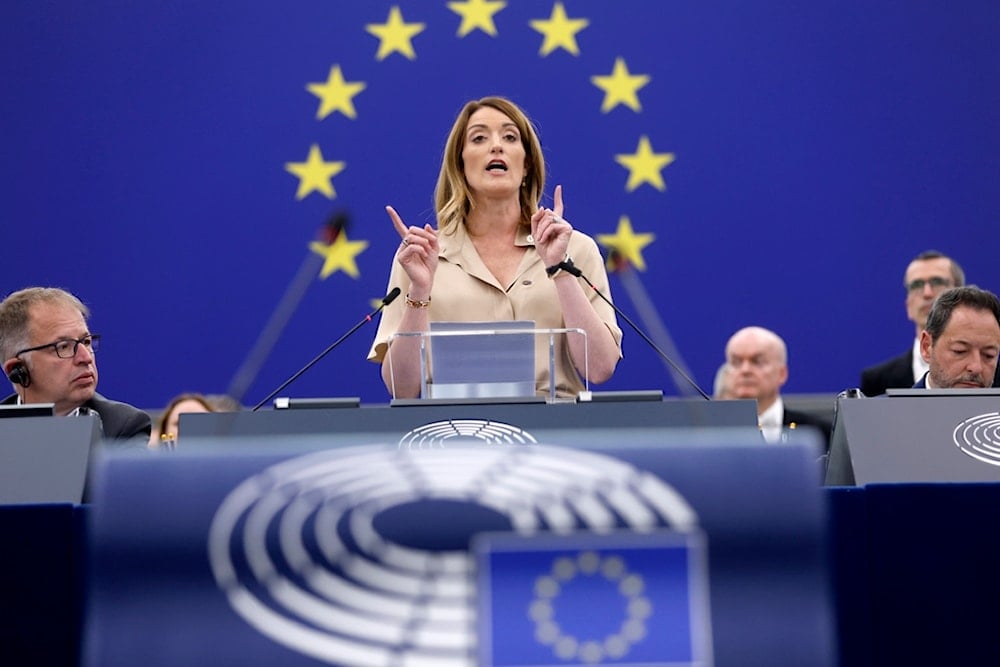EU parliament overwhelmingly re-elects Metsola as speaker
Maltese conservative Roberta Metsola secures another two-and-a-half-year term as European Parliament speaker, receiving 562 votes out of 699 participating MEPs.
-

European Parliament President Roberta Metsola speaks during the opening plenary of the newly-elected European Parliament in Strasbourg, eastern France, Tuesday, July 16, 2024. (AP)
The European Parliament on Tuesday overwhelmingly re-elected Maltese conservative Roberta Metsola as speaker, marking the first significant vote on EU leadership positions following the June elections.
As EU lawmakers commence their five-year term, the atmosphere in Europe is tense, with the future of current European Commission President Ursula von der Leyen in question.
The bloc is confronting numerous challenges, including a sluggish economy and rising global uncertainties, which leaders will need to address post-election.
In the initial major vote, Metsola secured another two-and-a-half-year term as speaker, receiving 562 votes out of 699 participating MEPs.
Metsola, a member of the largest political group in parliament, the conservative European People's Party (EPP), has held the position since 2022.
She committed to tackling issues affecting EU citizens, including the "looming" housing crisis, and vowed to implement "proper" migration legislation.
"We will leave Europe a better place by creating a new security and defense framework that keeps people safe," Metsola vowed.
However, the focus will shift to Thursday's vote, where lawmakers will decide whether von der Leyen will continue for another five years as commission chief.
Since EU leaders agreed on her candidacy in late June, von der Leyen has been working to gain the support of lawmakers from major political groups.
It could be a close contest, as the German secured her position by just nine votes in 2019.
Europe's far-right made significant gains in the June elections across the 27-country bloc, though the centrist coalition of the EPP, Socialists, Democrats, and Liberals remains the largest.
Von der Leyen's EPP is the largest political group in the parliament with 188 seats, and theoretically, with its coalition partners, it has the numbers to meet the 361-vote threshold. However, several MEPs have indicated they will vote against her in the secret ballot.
The new parliament will also elect 14 vice presidents, and the political landscape of the process is more complex than ever, with two far-right groups increasing their presence.
The European Conservatives and Reformists, led by Italian Prime Minister Giorgia Meloni's post-fascist Brothers of Italy party, already hold one vice president position and now seek two.
A new group, Patriots for Europe, created by Hungary's Prime Minister Viktor Orban and including France's far-right National Rally, is now the parliament's third-largest faction and aims for two vice-president spots.
But the far-right Patriots are a red line for the centrist coalition.
"We don't want these MEPs to represent the institution," said EPP spokesman Pedro Lopez de Pablo, adding that discussions are underway to prevent the "extreme right" from securing prominent positions.

 3 Min Read
3 Min Read








